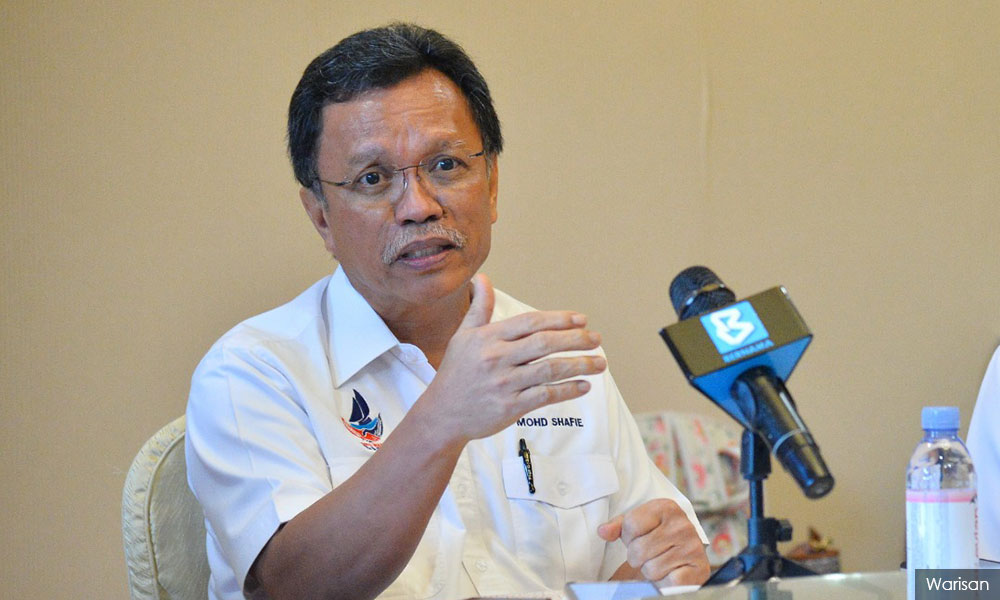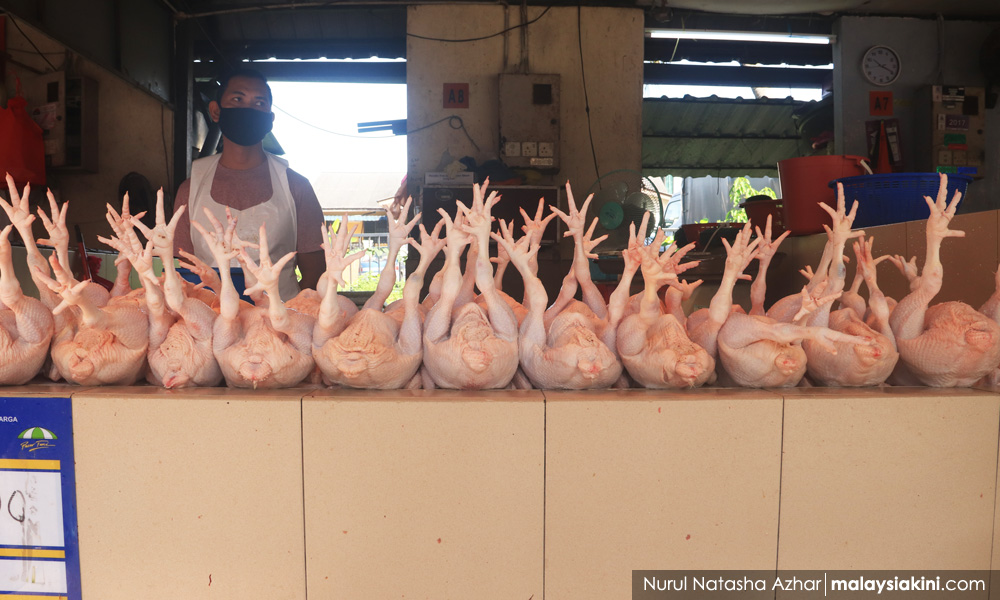Parti Warisan Sabah has called on the government to monitor and investigate the recent increase of chicken prices in the market by looking into possible cartels run by irresponsible parties.
In a statement today, Warisan president Mohd Shafie Apdal said that this is to prevent the rakyat from being burdened with uncontrolled price increases and manipulations by irresponsible parties.
Shafie cited the previous burden faced by the rakyat back in June when palm oil for cooking increased at approximately RM10 per bottle due to price manipulation.
“After two months of negotiations and trying to reach an agreement with the producers, on Aug 1 the government set the maximum retail price of palm cooking oil at RM29.70.
“Ironically, during those two months, consumers were burdened with price increases without government control and allowed price manipulation at the level of producers, distributors, wholesalers or retailers,” he said.
In that regard, Shafie said the best solution would be to investigate cartels in the market to resolve the issue of increased prices.
“I call on the government to launch investigations into cartels in the market and prevent any price manipulation and increase by irresponsible parties.
“At the same time, (the government) gets to solve the rise in chicken prices more effectively and responsibly,” Shafie said.

A cartel exists when businesses agree to act together instead of competing with one another.
This agreement is designed to drive up the profits of cartel members while maintaining the illusion of competition.
Chicken prices reportedly increased by 30 percent in recent weeks, exceeding the standard RM10 per kilogramme.
Meanwhile, the Semporna MP added that on top of chicken prices, which have reportedly increased by 30 percent in recent weeks, fish prices have also increased at an alarming rate
This has led to a decline in fish and seafood sales by almost 80 percent, he said.
Finance Ministry pledged to stabilise prices
“Given that chicken and fish are the main sources of food for most Malaysian households, this increase in prices is worrying.
“Furthermore, the Department of Statistics Malaysia recorded that the Consumer Price Index (CPI) in July was less encouraging at 122.5 points, down 0.6 percent from the previous month,” Shafie said.
On Saturday, the Finance Ministry, along with the Domestic Trade and Consumer Affairs Ministry and the Agriculture and Food Industries Ministry, pledged to study the best methods to stabilise the rising prices.
Shafie acknowledged the government’s efforts, but he went on to stress that it was important to carry out enforcement and impose high fines under anti-competition laws on any party controlling or manipulating the prices of basic household necessities, especially when the country is severely affected by the Covid-19 pandemic.

He said action can be taken against these parties under Section 4 of the Competition Act 2010 (Act 712), which prohibits any form of an alliance of anti-competitive nature.
He also suggested that the government conducts more governance and consultation with stakeholders.
“For example, traders were also affected by the pandemic, which led to the increase in the rents for their premises. These traders have to pass on the cost to consumers by raising prices.
“This matter should be refined so that appropriate assistance can be channelled to the affected traders.
“It also helps in reducing the costs and prices of goods,” Shafie said.
Referring to the records released by the Department of Statistics Malaysia, Shafie said the 16.7 percent increase in inflation rate in the past 10 years - assessed through consumer purchasing power - has led to a worrying trend.
“Action needs to be taken immediately and effectively, so that inflation can be controlled accordingly.
“The government should continue to work to strengthen the purchasing power of the people in obtaining food and daily necessities,” he said.
On Sept 11, Deputy Domestic Trade Minister Rosol Wahid was reported as saying that a proposal would be submitted to the Finance Ministry to provide subsidies to chicken farm operators in the country as a measure to control the price of chicken.
Rosol was quoted as saying that the spike in chicken prices now was reported to be due to higher prices of chicken feed, namely soya bean and corn, which are fully imported and that affected local chicken breeders.
Agriculture and Food Industries Minister Ronald Kiandee previously said that a special body must be set up to monitor and address the issue of rising chicken prices in the local market. - Mkini




No comments:
Post a Comment
Note: Only a member of this blog may post a comment.